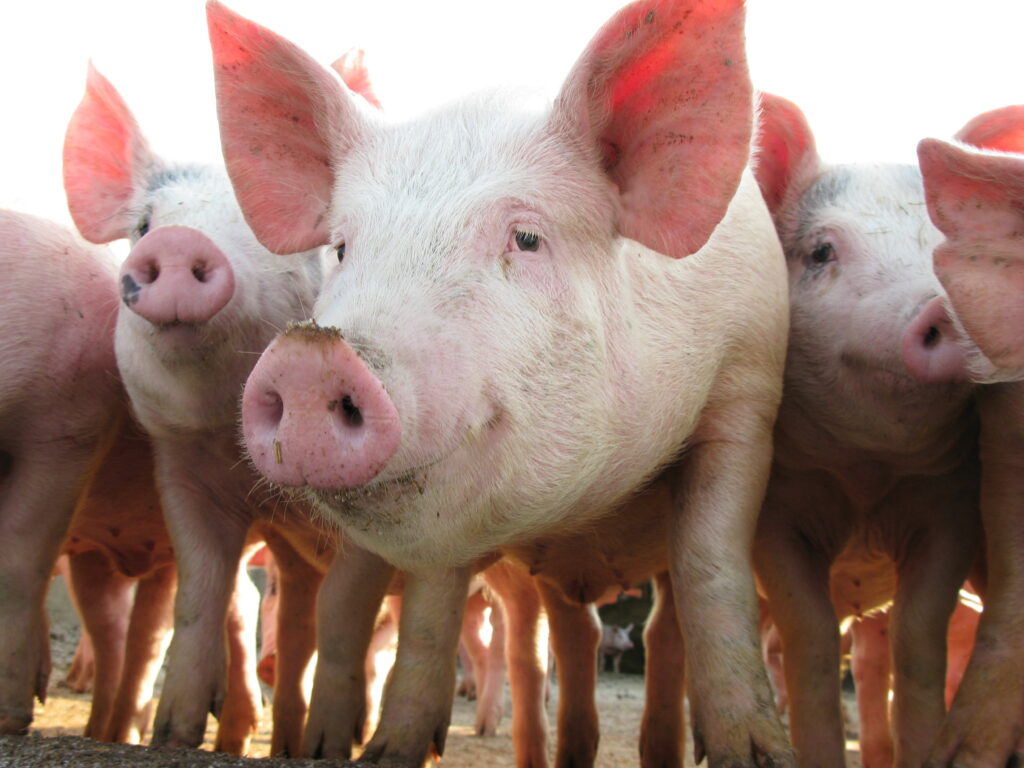A new study led by the Royal Veterinary College (RVC) has revealed significant genetic and antigenic diversity in European swine influenza viruses.
The researchers said their findings raise the critical need for pandemic preparedness and vaccine effectiveness in both animal and human populations.
Although swine flu is widespread in pig farming, often affecting an estimated 50% of UK production pigs, human cases remain rare. However, the 2009 pandemic proved that swine-origin flu viruses can cross into human populations with devastating effects.
Additionally, humans can transmit flu to pigs, introducing new strains and complicating control efforts, meaning the need for vigilance and preparedness is critical, the researchers said.
The study
The collaborative study – one of the most comprehensive antigenic studies of European swine flu viruses to date – examined swine flu virus data collected across Europe between 2010 and 2020. It also involved testing the immune responses of human populations to a range of swine flu variants.
Working alongside European partners, teams in the US and Taiwan, and the Animal and Plant Health Agency (APHA) and the United States Department of Agriculture (USDA), the RVC led the data analysis to better understand the risks these viruses pose.
The team studied available genetic data to analyse the diversity of viruses circulating in pigs. Certain viruses were then tested against strains used in pig vaccines and candidate vaccine viruses available for pandemic preparedness to see how closely each of the viruses were related antigenically.
Select viruses were also tested against human serum from different international cohorts to determine how well populations would recognise these different swine flus and therefore understand how effective population immunity would be, should one of these variants emerge.
Key findings
Key findings revealed extensive variation in circulating swine influenza viruses, with implications for vaccine updates in both pigs and pandemic preparedness. The team also found that evolving strains could reduce the effectiveness of existing vaccines, necessitating ongoing antigenic characterisation and monitoring.
Additionally, variable human immunity to swine flu variants was shown, indicating that some strains could pose serious pandemic threats and potentially severe consequences if transmitted to humans.
The researchers stressed that, if a variant was to spread from pigs to humans, early knowledge of its characteristics would be key in helping to develop faster responses with targeted vaccines.
They said the results underscore a need to continually update pig vaccines and pandemic preparedness plans and collaborate internationally across borders to better monitor and mitigate against disease evolution and spread. This includes reinforcing the vital role of biosecurity and surveillance.
Effective vaccines
Amelia Coggon, PhD Student at the RVC, said: “Our study has high relevance to pandemic preparedness and swine flu vaccination. By better monitoring how these viruses evolve, we can ensure vaccines used in pigs remain effective, reducing production losses as well as reducing the risk of human infection.
“It also highlights the critical role of international collaboration and ongoing surveillance for zoonotic diseases. Just because we stop looking, it doesn’t mean these viruses disappear. Protecting human health begins with investing in animal health, and that means sustained, cross-sector funding – especially for diseases with pandemic potential.”
Katy Shaw Saliba, co-author of the paper and formerly of the JHCEIRS project, said: “Here, the diversity of the influenza virus in European swine and its serological cross-protection with human antisera was quantified, allowing for an understanding of which viruses could pose greater risk for animal and human health.
“The findings from this paper highlight the value of international research collaborations in identifying influenza virus risk.”




